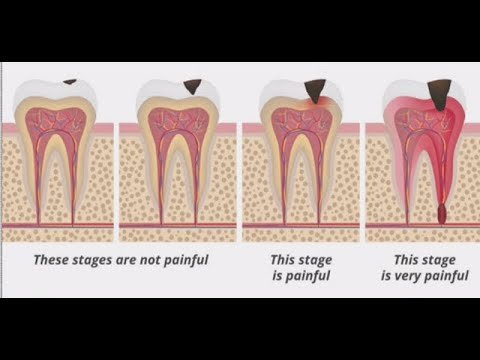The Speed of Cavities: How Fast They Grow

Cavities are a common dental issue that can lead to pain and discomfort if left untreated. But just how fast do cavities actually grow? Understanding the rate at which cavities develop is crucial for maintaining good oral health. In this article, we will delve into the factors that contribute to cavity growth and explore the best ways to prevent and treat them. Whether you're curious about the speed of cavity progression or looking for tips to keep your smile healthy, this article has you covered.
How fast does a cavity form?
Cavities can develop at varying rates, with most progressing over a period of years. However, in children, it is not uncommon for cavities to form in just a matter of months. Regular dental check-ups and proper oral hygiene are important in preventing the rapid development of cavities.
Maintaining good oral health is crucial in preventing cavities from forming quickly. While some cavities may take years to develop, children are especially susceptible to cavities forming in a short amount of time. By practicing proper oral hygiene habits and visiting the dentist regularly, individuals can help slow down the development of cavities and maintain a healthy smile.
Can a cavity worsen in 2 weeks?
Yes, a cavity can indeed worsen in just 2 weeks if left untreated. Neglecting proper dental care, such as brushing and flossing regularly, can allow the cavity to grow in size and depth. This provides a breeding ground for harmful bacteria to thrive, leading to further decay and potential complications.
It is crucial to address cavities promptly to prevent them from escalating into more severe dental issues. Regular dental check-ups and cleanings can help catch cavities early on, allowing for timely treatment and intervention. By staying on top of your oral hygiene routine and seeking professional dental care when needed, you can minimize the risk of cavities worsening and maintain optimal oral health.
Can a cavity be filled after waiting 6 months?
It is not recommended to wait six months to fill a cavity. While it may seem convenient to put off dental treatment, allowing decay to progress for so long can lead to more serious issues such as difficulty chewing and intense discomfort. It's best to address cavities promptly to prevent further complications and maintain oral health.
Understanding the Rapid Growth of Cavities
Did you know that cavities are one of the most common dental issues worldwide? Despite advancements in oral hygiene, cavities continue to affect people of all ages. Understanding the rapid growth of cavities is crucial in preventing further dental problems. Poor oral hygiene, sugary diets, and lack of regular dental check-ups are major contributors to the increase in cavity rates.
The bacteria in our mouths feed on sugars from the food we consume, producing acids that erode tooth enamel and lead to cavities. Regular brushing and flossing help remove plaque and prevent the buildup of harmful bacteria. In addition, cutting back on sugary snacks and drinks can significantly reduce the risk of cavities. By taking proactive steps to maintain good oral health, you can avoid the pain and discomfort associated with cavities.
Visiting the dentist for regular check-ups and cleanings is essential in detecting and treating cavities early on. A dentist can identify signs of decay and provide necessary treatments to prevent further damage to your teeth. By prioritizing oral health and understanding the factors contributing to cavity growth, you can maintain a healthy smile for years to come.
Exploring the Quick Development of Dental Decay
As we delve into the rapid progression of dental decay, it becomes evident that early intervention is crucial in preventing further damage. The bacteria responsible for decay can quickly spread and compromise the integrity of the tooth structure. Regular dental check-ups and proper oral hygiene practices are essential in combating this common issue. By staying proactive and addressing decay at its onset, individuals can avoid more extensive treatments down the line.
Furthermore, the modern diet and lifestyle habits have contributed to the accelerated development of dental decay. High sugar consumption, acidic foods, and poor oral hygiene routines all play a significant role in the deterioration of tooth enamel. Understanding the impact of these factors on oral health is key in making informed decisions about dietary choices and daily habits. By making conscious efforts to limit sugar intake and maintain a consistent oral care routine, individuals can effectively combat the progression of decay.
In conclusion, the quick development of dental decay highlights the importance of proactive dental care and healthy lifestyle choices. By prioritizing regular dental check-ups, practicing good oral hygiene, and making mindful dietary decisions, individuals can prevent the rapid advancement of decay. Taking control of one's oral health is a proactive approach that can lead to long-term benefits and a brighter, healthier smile.
In essence, understanding the rate at which cavities grow is essential in maintaining optimal oral health. By staying proactive with regular dental check-ups, proper oral hygiene practices, and a balanced diet, individuals can effectively slow down the progression of cavities and prevent further damage. Taking these steps can help ensure a healthy smile for years to come.